Filter by
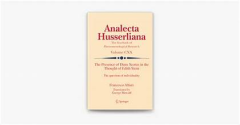
The Presence of Duns Scotus in the Thought of Edith Stein
This book examines the phenomenological anthropology of Edith Stein. It specifically focuses on the question which Stein addressed in her work Finite and Eternal Being: What is the foundational principle that makes the individual unique and unrepeatable within the human species? Traditional analyses of Edith Stein’s writings have tended to frame her views on this issue as being influenced by …
- Edition
- 1
- ISBN/ISSN
- 978-3-319-15663-7
- Collation
- XV, 184, 6 b/w illustrations
- Series Title
- Analecta Husserliana
- Call Number
- -

Crafting the 613 Commandments Maimonides on the Enumeration, Classification,…
Rabbinic tradition has it that 613 commandments were given to Moses on Mount Sinai, but it does not specify those included in the enumeration. Maimonides methodically and artfully crafts a list of 613 commandments in a work that serves as a prolegemenon to the Mishneh Torah, his monumental code of law. This book explores the surprising way Maimonides put this tradition to use and his possible r…
- Edition
- -
- ISBN/ISSN
- 9781618118486
- Collation
- -
- Series Title
- -
- Call Number
- -
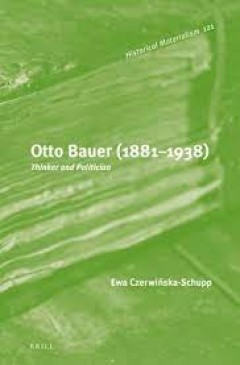
Otto Bauer (1881-1938) Thinker and Politician
Gegenstand des Buches ist die Darstellung Otto Bauers als führende Gestalt des Austromarxismus und der SDAP, sowie die kritisch-analytische Lesart seiner philosophisch-historischen, wirtschaftlichen, soziologischen und sozialpolitischen Theorien, die vor dem Hintergrund der damaligen Diskussion in der II. und der III. Internationale, der politischen Ereignisse in der SDAP, der internationalen …
- Edition
- -
- ISBN/ISSN
- 9789004325838
- Collation
- -
- Series Title
- -
- Call Number
- -
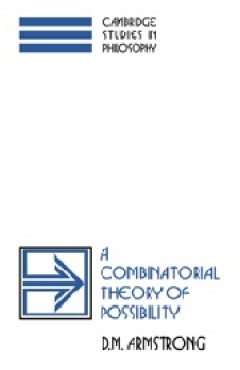
A Combinatorial Theory of Possibility
David Armstrong's book is a contribution to the philosophical discussion about possible worlds. Taking Wittgenstein's Tractatus as his point of departure, Professor Armstrong argues that nonactual possibilities and possible worlds are recombinations of actually existing elements, and as such are useful fictions. There is an extended criticism of the alternative-possible-worlds approach champion…
- Edition
- -
- ISBN/ISSN
- 9781139172226
- Collation
- -
- Series Title
- -
- Call Number
- -
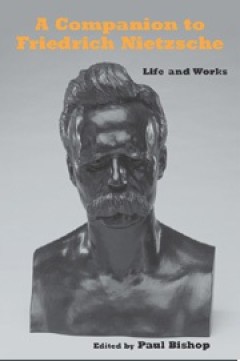
A Companion to Friedrich Nietzsche: Life and Works
Nietzsche looms over modern literature and thought; according to Gottfried Benn, 'everything my generation discussed, thought through innerly; one could say: suffered; or one could even say: took to the point of exhaustion - all of it had already been said . . . by Nietzsche; all the rest was just exegesis.' Nietzsche's influence on intellectual life today is arguably as great; witness the vari…
- Edition
- -
- ISBN/ISSN
- 9781571137739
- Collation
- -
- Series Title
- -
- Call Number
- -
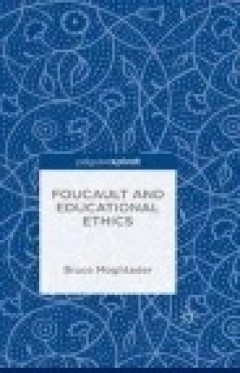
Foucault and Educational Ethics
In his works on ethics, Foucault turned towards an examination of one's relationship with oneself and others. This differs from the modern approaches that explore the relationship between and the responsibilities of actors to each other by adopting criteria. Ethical criteria engender assumptions about the actors by focusing on their responsibilities. Instead of relying on criteria, Foucault's w…
- Edition
- -
- ISBN/ISSN
- 978-1-137-57496-1
- Collation
- XIV, 112 pages
- Series Title
- -
- Call Number
- -
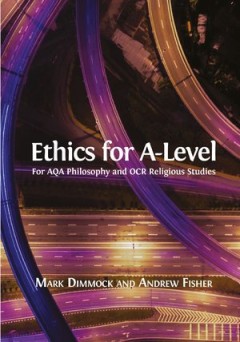
Ethics for A-Level
What does pleasure have to do with morality? What role, if any, should intuition have in the formation of moral theory? If something is ‘simulated’, can it be immoral? This accessible and wide-ranging textbook explores these questions and many more. Key ideas in the fields of normative ethics, metaethics and applied ethics are explained rigorously and systematically, with a vivid writing st…
- Edition
- -
- ISBN/ISSN
- 9781783743902
- Collation
- -
- Series Title
- -
- Call Number
- -
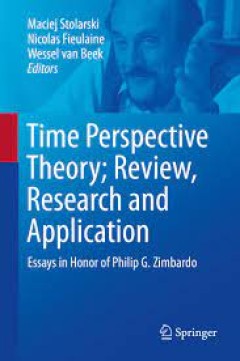
Time Perspective Theory; Review, Research and Application Essays in Honor of…
This book is about time and its powerful influence on our personal and collective daily life. It presents the most comprehensive and up-to-date overview of contemporary knowledge on temporal psychology inspired by Zimbardo's work on Time Perspective (TP). With contributions from renowned and promising researchers from all over the globe, and at the interface of social, personality, cognitive an…
- Edition
- -
- ISBN/ISSN
- 978-3-319-07368-2
- Collation
- -
- Series Title
- -
- Call Number
- -
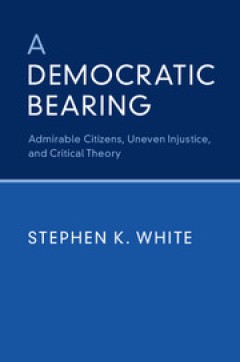
A Democratic Bearing
In this rich analysis of the changing ideals of citizenship, Stephen K. White offers a path for the renewal of democratic life in the twenty-first century. Looking beyond passive notions of citizenship defined in terms of voting or passport possession, White seeks a more aspirational portrait, both participatory and inclusive, that challenges citizens, especially in the middle class, to confron…
- Edition
- -
- ISBN/ISSN
- 9781316717394
- Collation
- -
- Series Title
- -
- Call Number
- -
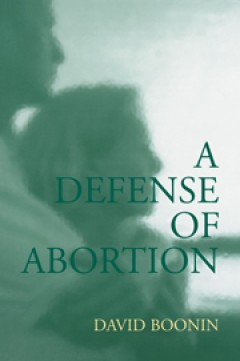
A Defense of Abortion
David Boonin has written the most thorough and detailed case for the moral permissibility of abortion yet published. Critically examining a wide range of arguments that attempt to prove that every human fetus has a right to life, he shows that each of these arguments fails on its own terms. He then explains how even if the fetus does have a right to life, abortion can still be shown to be moral…
- Edition
- -
- ISBN/ISSN
- 9780511610172
- Collation
- -
- Series Title
- Cambridge Studies in Philosophy and Public Policy
- Call Number
- -
 Computer Science, Information & General Works
Computer Science, Information & General Works  Philosophy & Psychology
Philosophy & Psychology  Religion
Religion  Social Sciences
Social Sciences  Language
Language  Pure Science
Pure Science  Applied Sciences
Applied Sciences  Art & Recreation
Art & Recreation  Literature
Literature  History & Geography
History & Geography